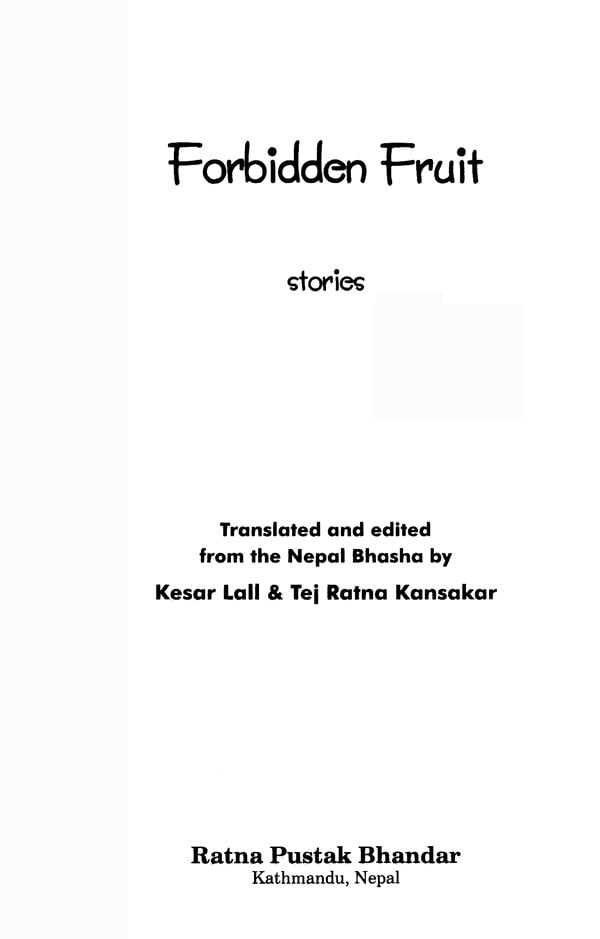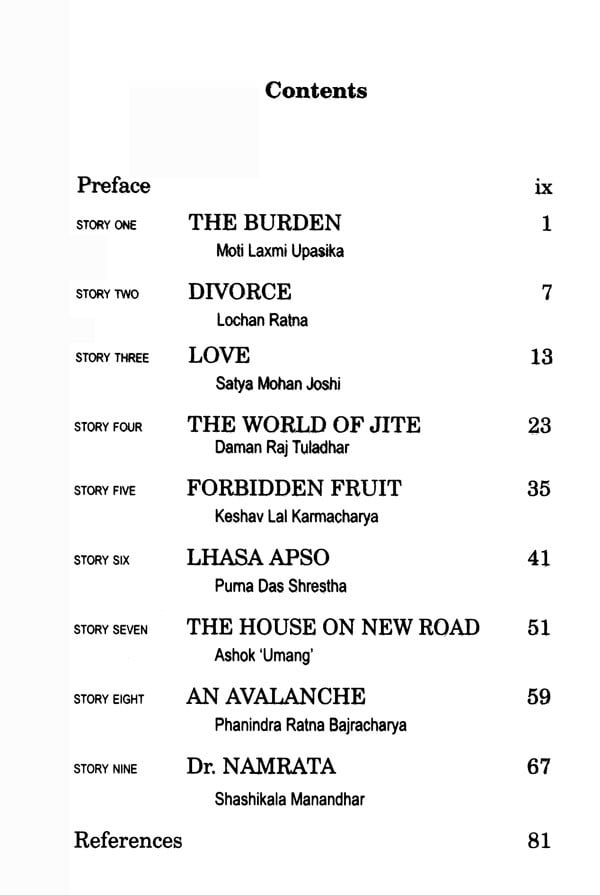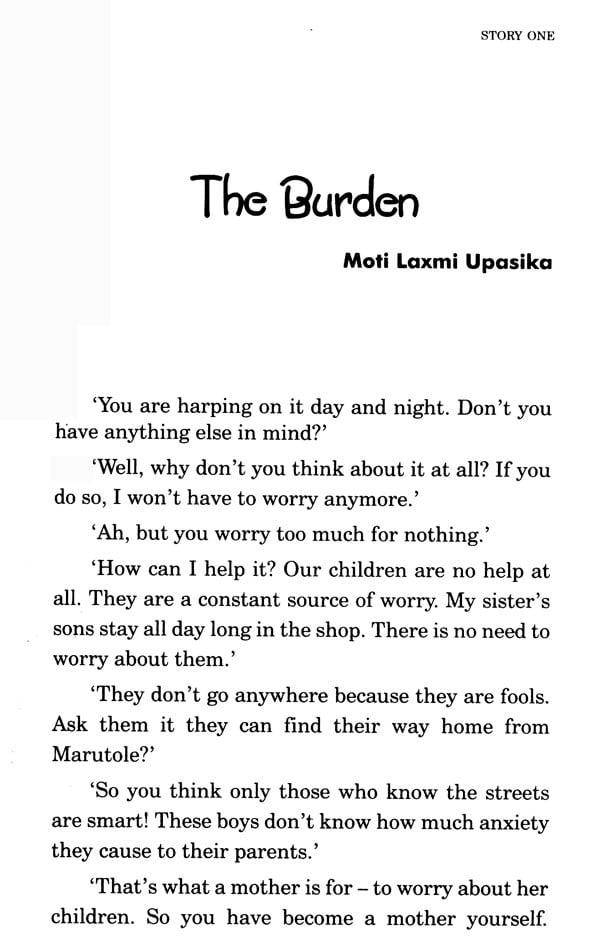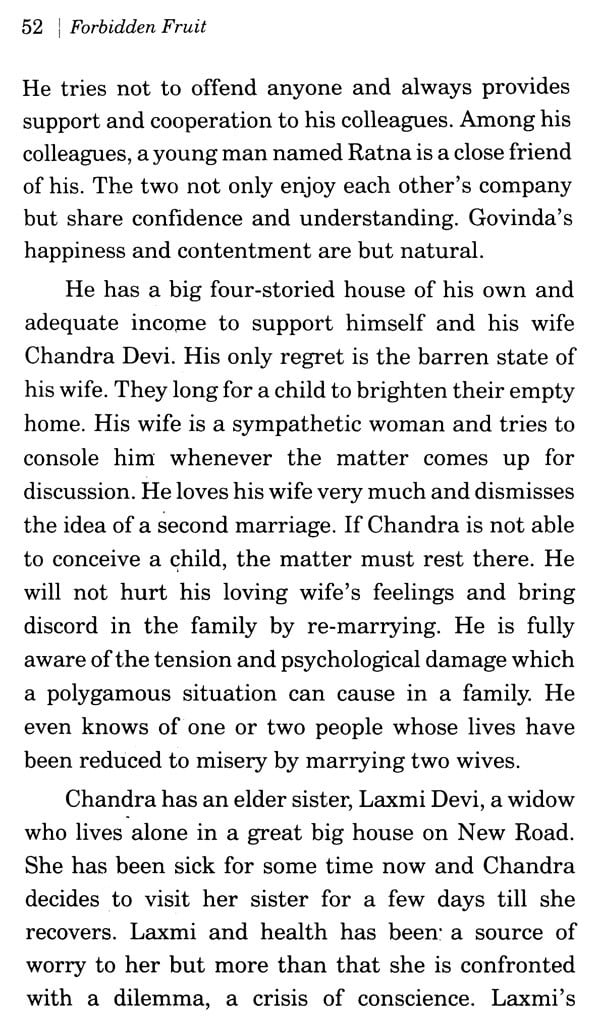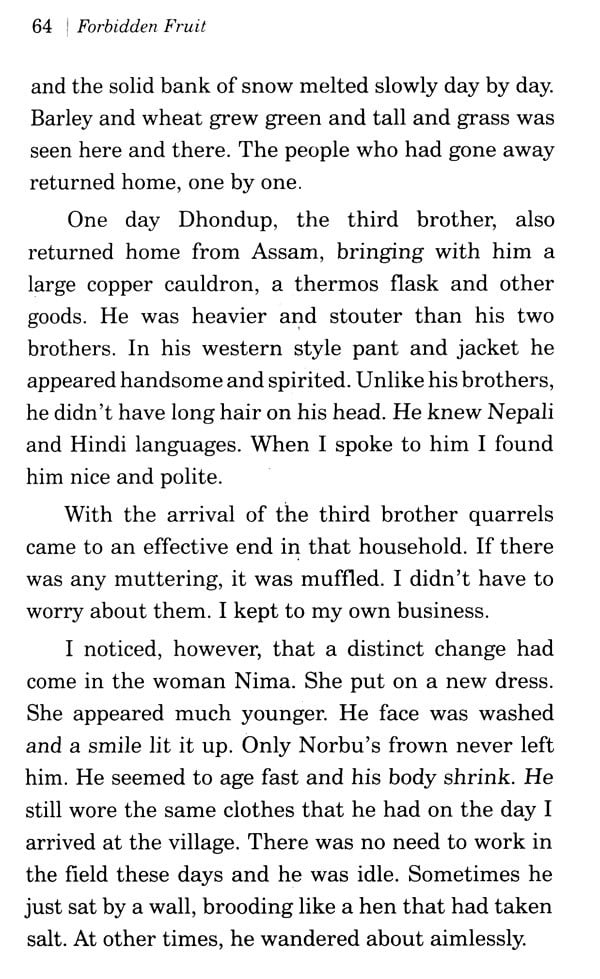
Forbidden Fruit- Stories (Translated and Edited from the Nepal Bhasha)
Book Specification
| Item Code: | UAR849 |
| Author: | Kesar Lall & Tej Ratna Kansakar |
| Publisher: | Ratna Pustak Bhandar, Nepal |
| Language: | English |
| Edition: | 2014 |
| ISBN: | 9789993309222 |
| Pages: | 90 |
| Cover: | PAPERBACK |
| Other Details | 8.00 X 5.00 inch |
| Weight | 100 gm |
Book Description
Encouraged by the reception given to their first book An Anthology of Short Stories of Nepal (1992, Kathmandu, Foundation for Literature) - the translators have made yet another modest attempt to present in English nine short stories. The first published in 1950 and the last in 1992 being by women. The rest of the stories appeared within die same period. The stories reflect the changing times, social attitudes and problems, traditional and modern concepts as well as interaction between peoples of different ethnicity, castes and regions.
The translators are most grateful to the authors for their interest in this work and kind permission. They are also thankful to Mr. Govinda Prashad Shrestha of M/s. Ratna Pustak Bhandar for publishing it.
It is hoped that the reader would find it as interesting as the first book.
**Contents and Sample Pages**
